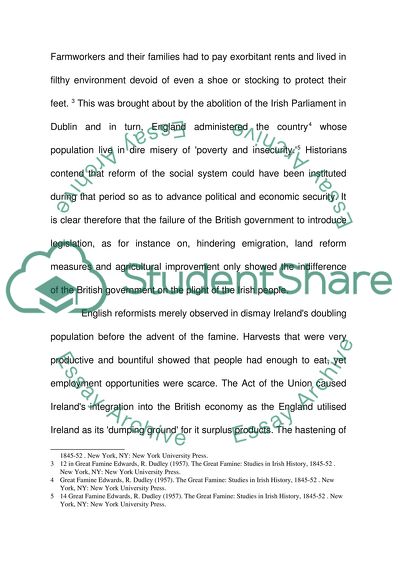Cite this document
(“Great Famine in Ireland Essay Example | Topics and Well Written Essays - 2000 words”, n.d.)
Retrieved from https://studentshare.org/history/1515846-great-famine-in-ireland
Retrieved from https://studentshare.org/history/1515846-great-famine-in-ireland
(Great Famine in Ireland Essay Example | Topics and Well Written Essays - 2000 Words)
https://studentshare.org/history/1515846-great-famine-in-ireland.
https://studentshare.org/history/1515846-great-famine-in-ireland.
“Great Famine in Ireland Essay Example | Topics and Well Written Essays - 2000 Words”, n.d. https://studentshare.org/history/1515846-great-famine-in-ireland.


